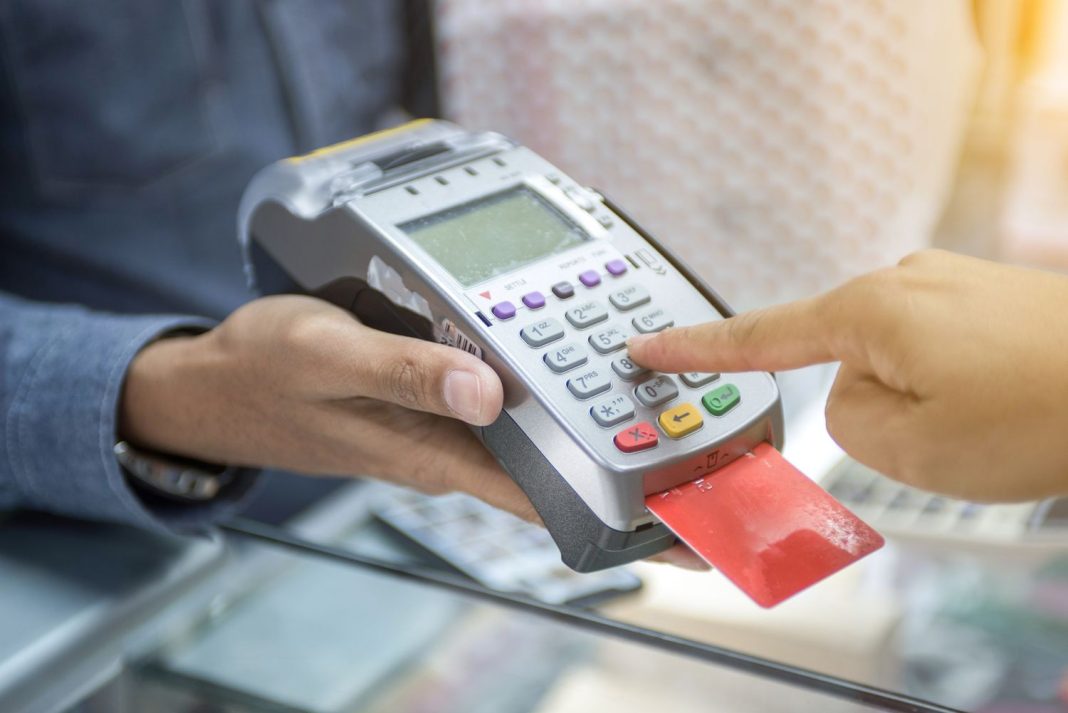Shop owners in the Federal Capital Territory (FCT), Abuja are recording brisk sales following the introduction of the cashless policy by the Central Bank of Nigeria (CBN), and its attendant hiccups.
Some of them who spoke to the News Agency of Nigeria (NAN), on Wednesday, said they were recording tremendous sales through the use of Point of Sale (POS) machines, and electronic transfers for payments of goods since the policy was implemented.
NAN discovered that the policy favours traders who had in the past gotten used to using POS for payments in spite of its network hitches.
Mr Sunday Ahmadu, who operates a mini supermarket along Jukwoyi road, said that his sales had tripled within this period, especially after the phasing out of the old naira notes.
According to Ahmadu, a lot of customers who patronise him, prefer to buy in bulk and pay at once, through online transfer because of the seamless payment process he provides.
“I have four accounts; Zenith, FCMB, GT and Access banks, and I normally ask customers about their preferred bank before they transfer.
“So what I do is to show them the list of the banks to transfer or use their Automated Teller Machine (ATM) cards, to make payments using the POS machine.
“Before now, a customer can decide to buy only one item and pay with cash, but due to the naira scarcity, they buy in bulk and pay at once through electronic transfer. This has made my sales to triple and encouraged profit on my business,” he said.
Another provision and foodstuff trader, Malam Ibrahim Sule, also expressed excitement over the development, saying that the difficulty faced by people to access the new naira notes gave him an edge over other traders who lacked POS and electronic banking platforms.
Sule, popularly called Baba, said the volume of his sales had gone up as people who were stranded because of the cash crunch, were making his shop a last resort in purchases to feed their families and meet other needs.
According to him, there may be hitches in transactions most times, but that he can always reconcile with his banks because of his long time experience in POS transactions.
“Many desperate people are being referred to my shop because of the current lack of cash.
“This made me to introduce more perishable items due to popular demand. I am happy to meet their needs and make more money.”
Mrs Nnenna Ozor, another trader, while narrating her experience said she used to be skeptical about online transactions, but recent events had forced her to embrace online transactions which was aiding her business.
Ozor listed the advantages associated with the cashless policy implementation to include; increased patronage, profit and curbing of debt by customers who often bought goods on credit.
She, however, said the only challenge in accepting the transfer was the refusal of other traders, especially petty businesses, to accept online transactions as they often requested for cash.
“Accepting money transfer is not a problem to me, though it spurs my business because customers buy more, but I still need cash because I cannot buy some items through transfer in the local markets.
“Once I go to the market to buy foodstuff like crayfish, ogbono, egusi, pepper and other petty things, I encounter difficulties because sellers reject transfer, and because village traders do not have bank accounts.
“Even those that have bank accounts reject online transfers because they complain that if they accept it, once they reach the village markets, the traders refuse to accept transfers.
“Also, if I do not have cash, I cannot buy bread, fufu, bags of pure water among others. So I try to balance it for my business to continue to thrive.”



